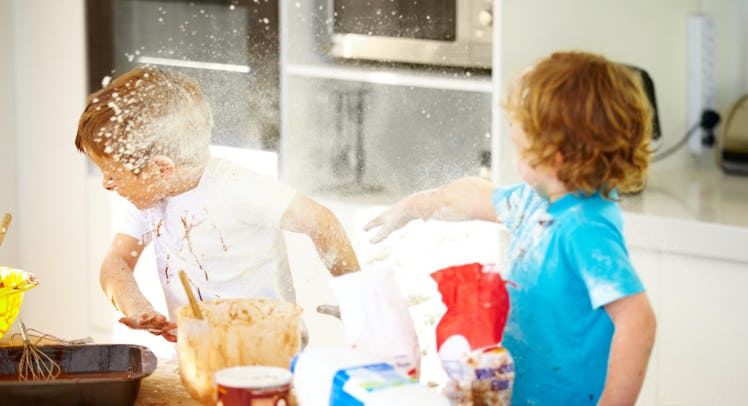Sibling Rivalries Develop When Parents Let Them
Research shows competition is hard-wired, but avoidable.

Sibling relationships are the “third rail” of family life according to Dr. Mark Feinberg, the lead investigator of Penn State University’s Siblings Are Special Project. His research shows that siblings can have almost as strong an effect on childhood outcomes as parents, pushing each other toward different varieties of friendships, romantic relationships, emotional and mental health problems, problematic behaviors, and achievements. Sharing parents, it turns out, is an incredibly powerful experience — and a positive one if mom and dad don’t encourage competition.
“Each of us is born wired-up for the capacity to engage in rivalry from a very young age,” Feinberg says. He places the genesis of this drive at the start of the vast arc of human history. He argues that in lean and ancient times, rivalries made sense. “To survive, a baby needed to be cared for,” he explains. “And when there were multiple children around, there was competition for resources including love, attention, support, food and protection.”
In societies where access to food and shelter is plentiful, competing against a sibling for survival isn’t necessary. But that doesn’t mean sibling rivalries have gone the way of the mammoth. Kids are still kids in a natural, instinctual way.
“Children tend to be more conflictual, negative and rivalrous with each other when parents are negative and harsh in their parenting,” Feinberg says.
He notes that at one time the accepted wisdom was that children would naturally band together in the face of a domineering parent. But that hypothesis has not been borne out by the research. Stress and insecurity from harsh treatment lead, in fact, to conflicts between siblings. Feinberg says that parents who spend one-on-one time with kids, in addition to communal family time, deflate rivalries.
The one-on-one time increases feelings of support in siblings. Those feelings of support reduce the need to use conflict to gain parental attention and approval. The communal family time then amplifies the effect by allowing both parents to model cooperation and good relationships in front of the siblings.
Feinberg also notes that when conflict does arise, the Sibling Project encourages parents to mediate. He acknowledges that this does take time and energy that parents often feel they do not have. But, he says, “When parents impose a decision, it doesn’t help siblings learn to resolve arguments.” The better way, according to Feinberg, is to assist siblings in defining the problem, generating ideas, and choosing a solution closest to a win-win.
Finally, Feinberg suggests that parents steer siblings towards activities and games that are cooperative. He notes some of the best of these include an aspect of making or building. When siblings are working together on a shared goal of creating a meal, or finishing a puzzle, competition becomes difficult and rivalry is diminished.
Feinberg notes that beyond these research-based solutions, there is are too few studies about sibling dynamics to give parents specific tactics. He considers that lack of research a social failure, and one he and his colleagues are working to address. Because not addressing rivalry can lead to way more than just hurt feelings. “Sibling relationships have the greatest amount of physical violence of any other family relationship,” Feinberg says. Which, in the end, should be motivation enough for parents to pay attention to that third rail.
This article was originally published on